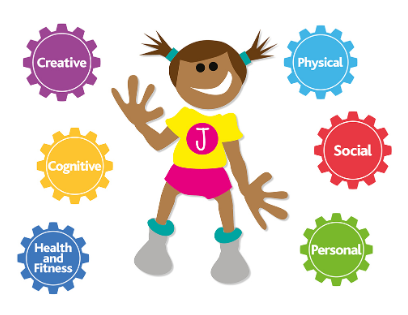At Sandown our aim is to deliver a high-quality PE curriculum, as well as offer a wide range of extra-curricular activities.
We believe that a rich and varied PE curriculum can improve attainment, attendance and behaviour. Physical activity not only improves health, reduces stress and improves concentration, but also promotes correct physical growth and development. Exercise has a positive influence on academic achievement, emotional stability and interaction with others.
Intent
By the time they leave Sandown, children have the skills to participate in dance, gymnastics, athletics, swimming, games and Outdoor Adventurous Activities.
At Sandown we want to create well rounded individuals through physical participation by a holistic child-centred approach, to transform PE experiences for EVERY child.
We focus on a key ability (Cog) each term that they will need in order to be successful, not just in PE and Sport but in everyday life and for life-long skills. This is through a scheme called Real PE.

- Social Skills
- Personal Skills
- Creative Skills
- Cognitive Skills
- Physical Skills
- Health & Fitness
The PE curriculum is designed to be a continuous cog so that the key abilities are revisited and developed through each lesson.
To read our PE curriculum overview please click here.
By creating these positive mindsets through PE, we aim to equip children with the knowledge, skills, behaviours and attitudes to make them want to be active when we’re not there!
There has often been a misconception about what being ‘good’ at PE means. For example, is it being the best at a specific sport, winning consistently or being the fastest in the class? These examples would cater for only a small percentage of children to become successful in PE.
At Sandown we believe EVERY children can be successful in PE and therefore assess children not just on their fundamental movement skills and performance but also on the 6 cogs shown above.
What does being ‘successful’ in PE mean at Sandown?
- Trying again when somethings hard
- Improving Personal Best scores
- Developing and improving balance, coordination and agility
- Helping, supporting and encouraging others
- Exploring and trying out different ideas and being creative
- Reflecting on their strengths and weaknesses
- Stretching and challenging themselves
- Knowing the benefits of physical activity to their health and wellbeing
- Reacting positively when things go wrong
- Working collaboratively as a pair, group or team
Foundation Stage
During the Foundation Stage, children will have the opportunity to develop a range of skills that promote their own physical development.
Lessons will concentrate on:
- the development of manipulative and motor skills
- experience of spatial awareness, control and co-ordination
- playing games
- movement
- the importance of caring after our bodies
- sharing, turn taking, choosing and making decisions
Key Stage 1 - Years 1 and 2
Children should develop movement skills, become increasingly confident and have a broad range of opportunities to extend their agility, balance and coordination, individually and with others.
They should be able to engage in competitive and co-operative physical activities, in a range of increasingly challenging situations.
Pupils should be taught to:
- master basic movements including running, jumping, throwing and catching, as well as developing balance, agility and co-ordination, and begin to apply these in a range of activities
- participate in team games, developing simple tactics for attacking and defending
- perform dances using simple movement patterns
Key Stage 2 - Years 3 to 6
Children should continue to apply and develop a broader range of skills, learning how to use them in different ways and to link them to make actions and sequences of movement. They should enjoy communicating, collaborating and competing with each other. They should develop an understanding of how to improve in different activities and sports, and learn how to evaluate and recognise their own success.
Pupils should be taught to:
- use running, jumping, throwing and catching in isolation and in combination
- play competitive games, modified where appropriate and apply basic principles suitable for attacking and defending
- develop flexibility, strength, technique, control and balance
- perform dances using a range of movement patterns
- take part in outdoor and adventurous activity challenges both individually and within a team
- compare their performances with previous ones and show improvement to achieve their personal best.
- children will be given opportunities to master these skills by attending a variety of sporting after school clubs
For additional information about this subject, please contact the school office and ask to speak to the subject leader.
See all the latest Sports news and events